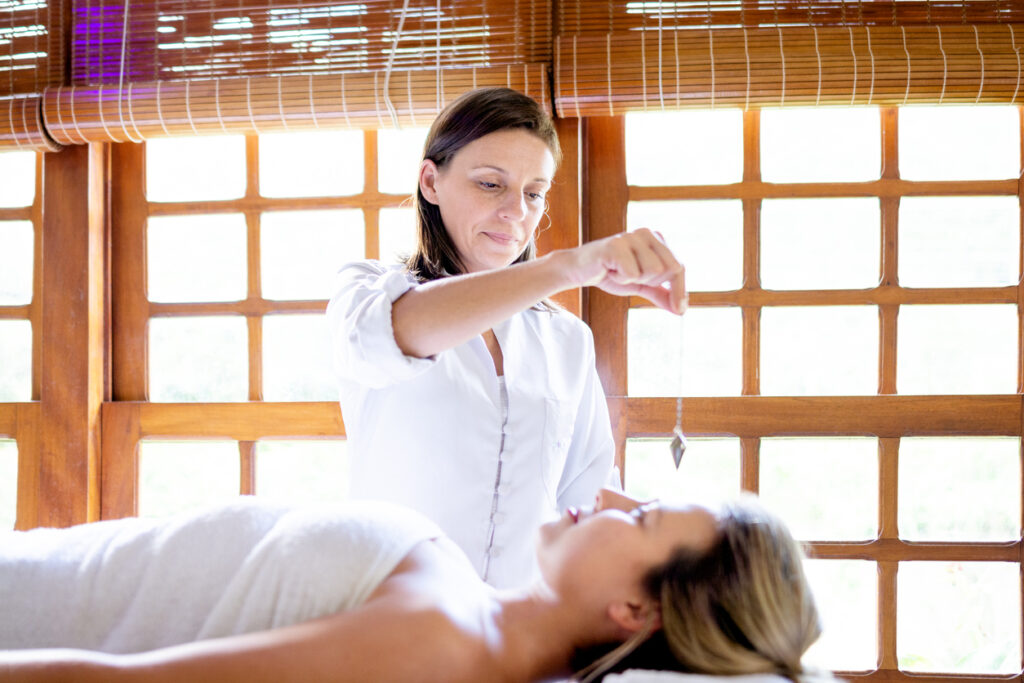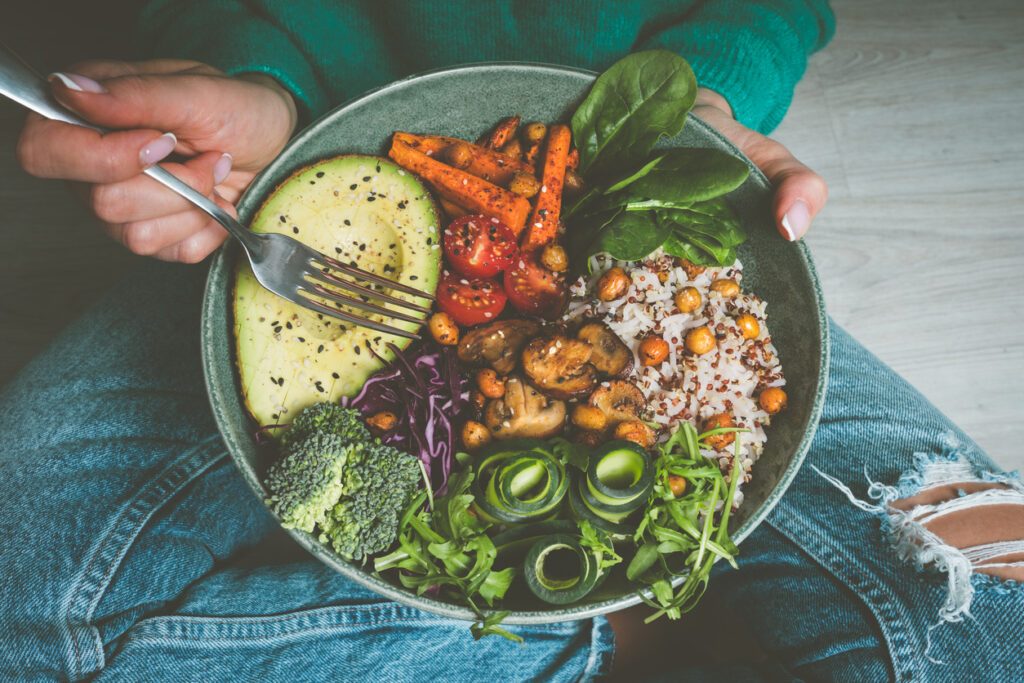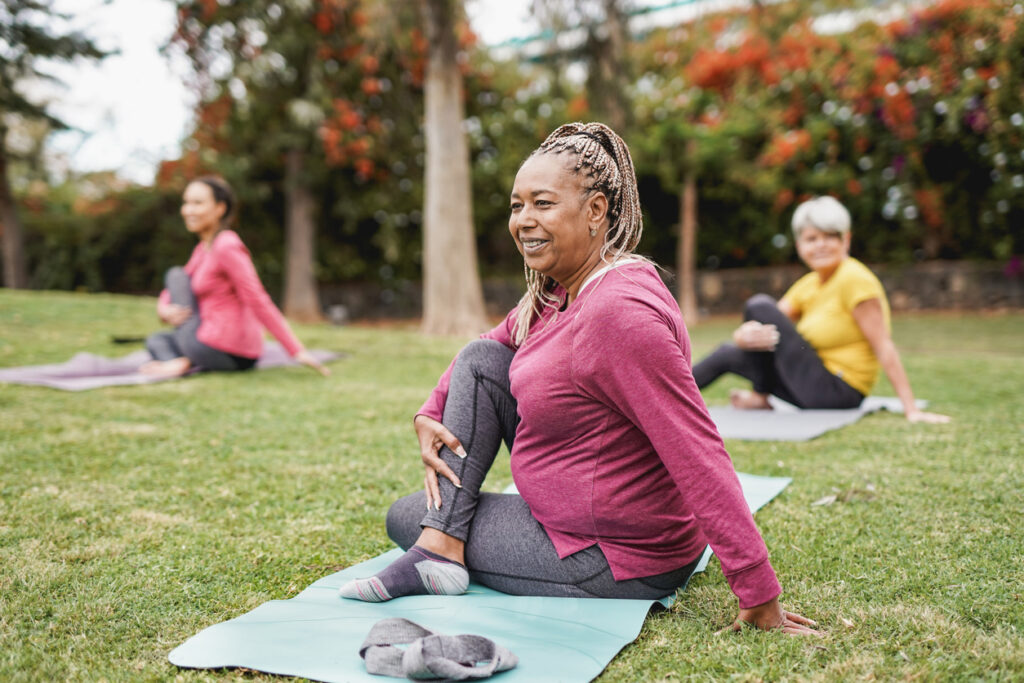Despite the fact that menopause is something that every woman will inevitably go through, it’s not something many people talked about until relatively recently. Many suffer in silence and a recent US study showed that almost three quarters (73 per cent) of menopausal women were not treating their symptoms. These included hot flashes (16 per cent), weight gain (15 per cent), difficulties with sleep (14 per cent), and night sweats (14 per cent), among others.
The State of Menopause Study by Bonafide, a company that sells products to treat women’s health conditions, included 1,039 women aged 40 to 65 across the US. It showed that nearly one-third of women never sought information about menopause before they experienced it.
Another UK study by Ipsos Mori for the British Menopause Society showed that half of women in the UK aged 45-65 years, go through menopause without consulting a medical professional. Half of the women who took part also said menopause impacted negatively on their lives.
Some women, however, may be reluctant to take clinical Hormone Replacement Therapy (HRT), which could be partly due to the outdated myth that taking HRT could increase your chances of getting breast cancer.
Dr Samantha Brown, GP and Menopause Specialist at The Bronte Clinic, in London, says: ‘After the Women’s Health Initiative (WHI) study in 2002 which overstated the risk of breast cancer, both patients and their doctors have been afraid to take or prescribe HRT.’
Clinical HRT today, which is now generally taken as a body identical hormone through the skin as an oestrogen patch, gel or spray and a progesterone hormone tablet is, Dr Brown says,‘safer than drinking a glass of wine a day.’
Some women, however, don’t think they feel ‘bad enough’ to go on clinical HRT, Dr Brown says. ‘Or they are too busy to look after their own needs as they are caring for children, sometimes parents and working too.’
Some may also have a history of high blood pressure, blood clots or ovarian cancer which mean it would be safer not to take clinical HRT.
So what can you do if you are looking to relieve your symptoms but are not sure what sort of alternative therapies are available? Here’s our handy guide to the best holistic alternatives.
Wild Yams
Wild yam is a plant that people have used for centuries in alternative medicine to treat menopause symptoms and also rheumatoid arthritis and muscular cramps.
There are various other names for wild yam, such as colic root, devil’s bones, rheumatism root, or China root. The bulb and roots of wild yams contain a chemical called diosgenin, which can influence the production of several useful hormones, including estrogen. It can be taken in a number of ways including tablets, cream or tea. The theory is that wild yam may increase or stabilize estrogen levels in the body to help relieve symptoms.
Hypnotherapy

In 2012, a research paper by Professor Gary Elkins, (Baylor University Mind-Body Medicine Research Laboratory U.S.A.) found that clinical hypnosis can effectively reduce hot flushes and associated symptoms among menopausal women.
Clinical hypnotherapist Andrea Aro, aka “The Change Therapist,” says before menopause became a ‘medical syndrome’ treatment centred around restoring balance, nutrition and holistic therapies. ‘Some women experience other symptoms which can also be addressed through hypnotherapy e.g., anxiety, panic attacks, depression, mood swings, vaginal dryness, low libido, weight gain, brain fog and poor sleep,’ Aro says.
‘During hypnosis, ladies learn how to control their hot flushes or night sweats. They learn how to cool themselves down quickly or even pre-empt a hot flush by tuning-in to what sets them off; e.g. certain types of alcohol can be triggers.’
Switch to a plant based diet
Plant-based diets, including whole foods, fruits and vegetables, have been found to help menopausal women shed the pounds without restricting their food. A 2018 trial, published in the National Library for Medicine, found that menopausal women who followed a vegan diet lost ‘more weight at a higher rate overall’ than those following a low-fat restricted diet. A daily portion of whole soybeans over 12 weeks was found to help reduce moderate-to-severe cases in menopausal women by 84 percent.

Agnus Castus
Agnus castus is a shrub that grows in Mediterranean countries and central Asia. It’s believed to help tackle female gynaecological issues and is still taken as a traditional herbal medicine to help relieve symptoms of premenstrual syndrome (PMS).
Agnus castus berries, also known as chasteberries, are usually dried out, then made into either a powder (taken as capsules) or a tincture. It can also be used as an essential oil.
Ginkgo biloba
This strangely-named herb comes from the leaves of the ancient maidenhair tree. A 2014 Iranian study found that women taking ginkgo biloba as an herbal remedy for menopause every day for 30 days felt increased libido compared with those taking a placebo.
It has also been shown to help relieve some of the psychological symptoms of the menopause – including memory problems and anxiety. So, ginkgo can restore your mojo in more ways than one!
Sage
Sage has long since been thought to help relieve a range of symptoms including hot flushes and night sweats.
In 2011, Swiss researchers discovered that women taking a daily tablet of fresh sage leaves experienced a reduction in hot flushes by 50 per cent in four weeks. After continuing to take sage, hot flushes among the participants in the study were reduced by 64 per cent within eight weeks. Women took a tablet made from fresh sage leaves.
Yoga, pilates and exercise
Maria Jones, who runs Yuva Yoga says that restorative yoga, which uses props, such as a chair, to support the body, helps menopausal women ‘reset’ and feel more energised. ‘It has been most beneficial for me going through the menopause and is vital to my daily life,’ she notes.

Black cohosh
Black cohosh is a member of the buttercup family. As an herbal remedy, it can be used for hot flashes, night sweats, and other menopause symptoms.
Acupuncture
‘Second spring is considered, in Chinese medicine, to be the period in life where a women enters the water phase, which is characterised by depth, wisdom and surrender. This is a time which is celebrated,’ Andrea Dewhurst, acupuncturist at The Channel Project says. ‘However, the reality for women entering peri-menopause can be a season of symptoms ranging from the physical to mental (depression, rage, anxiety, brain fog) issues. Acupuncture treats you for your individual signs and symptoms.’
An acupuncture study of 869 women in 2015 found that it significantly reduced the frequency and severity of night sweats and hot flushes. Another systematic review found that acupuncture could help improve the bone density in osteoporosis.
So with a number of holistic alternatives to HRT, you can hopefully celebrate rather than commiserate your ‘second spring.’













